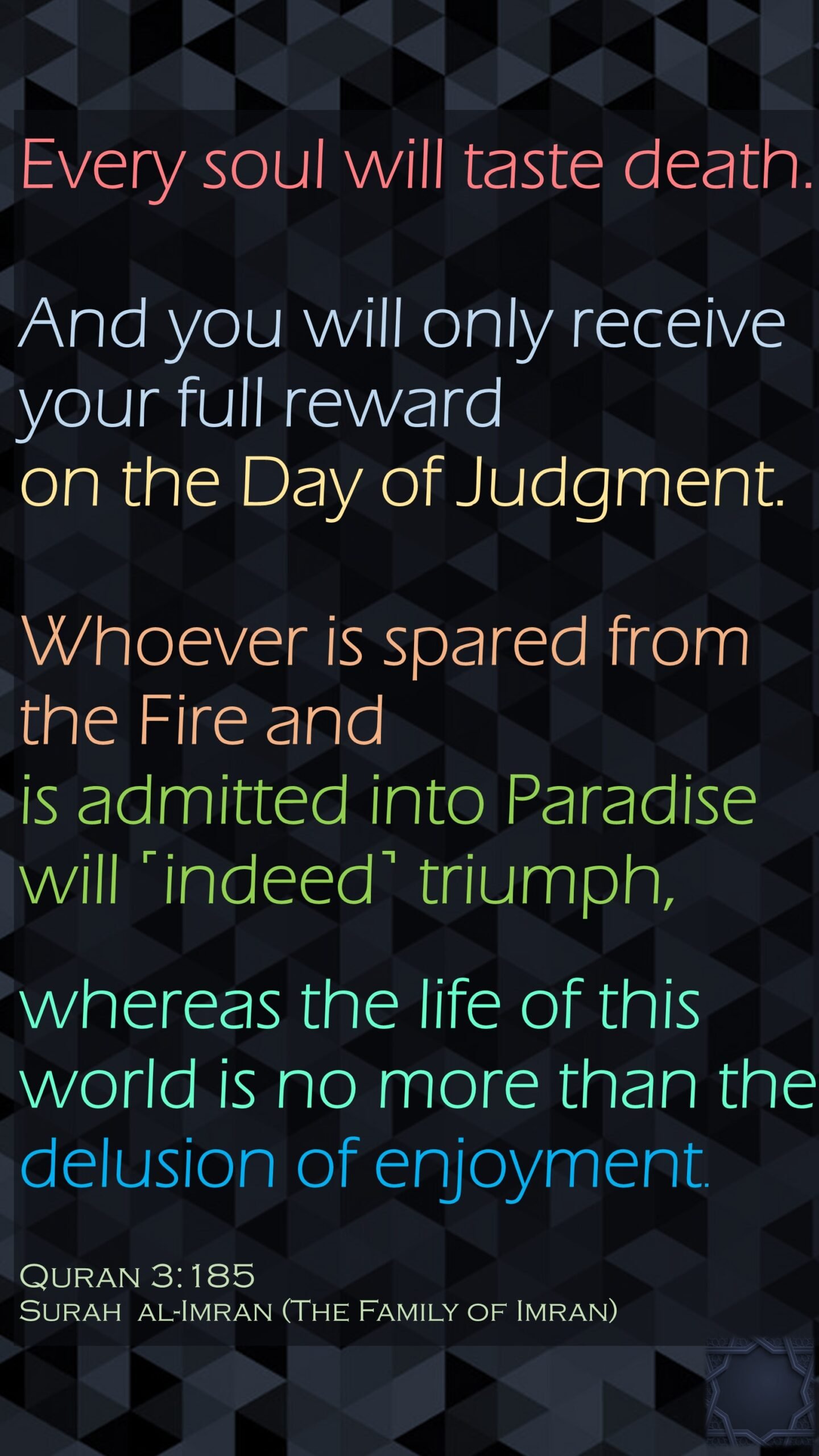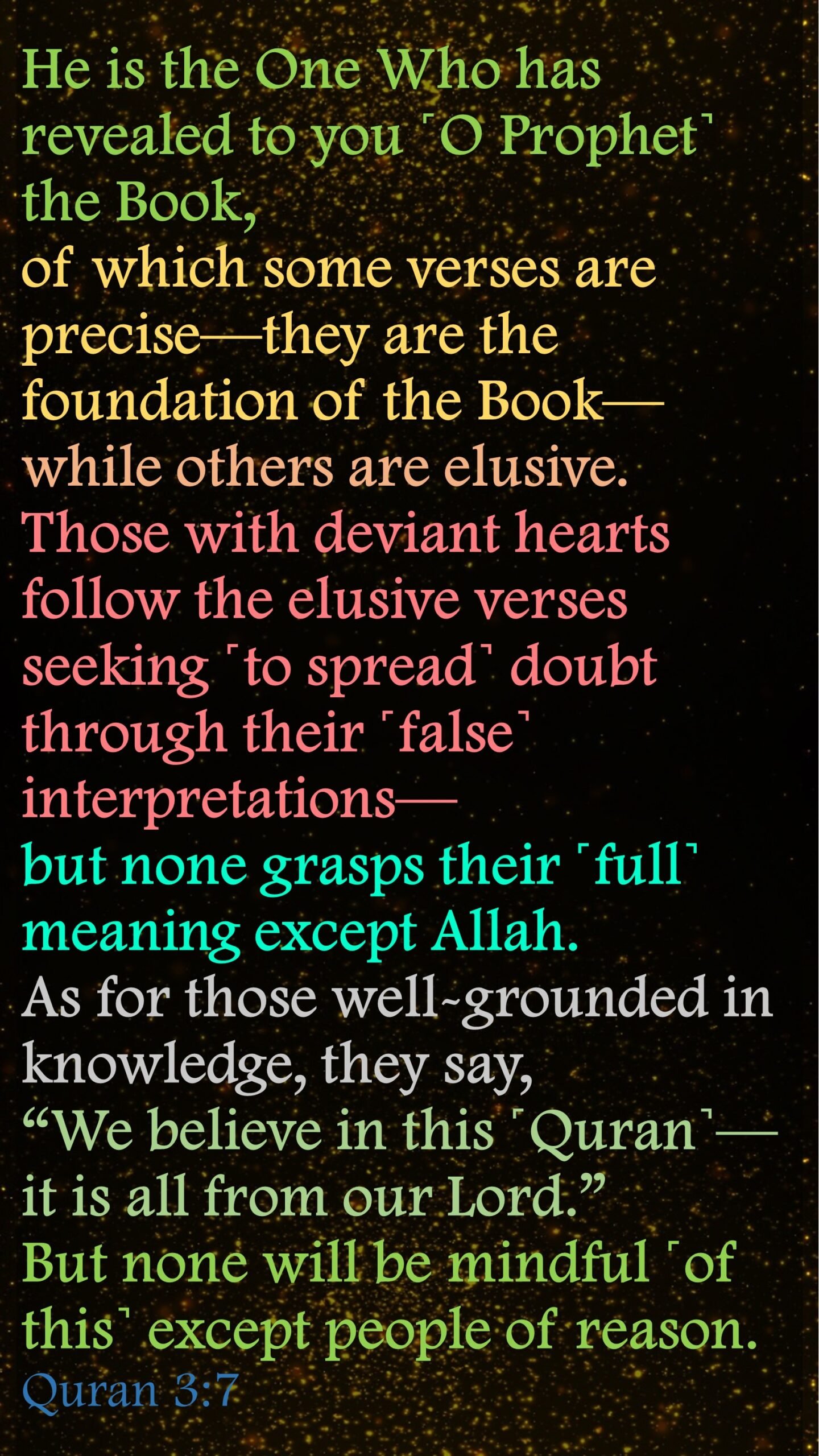Skip to Content
Tag Archives: family
- Home -
- Posts tagged "family"
( Page2 )
19
Jul, 2024
Islam, Quran
003, 184, Aal-e-Imran, admit, Allah, ayat, daily, day, Death, delusion, enjoy, enjoyment, family, fire, Imran, inspirations, islam, islamic, judge, judgement, Life, Muhammad, paradise, quran, reward, spare, Surah, taste, triump
1
Jun, 2024
Islam, Quran
Allah, ash-Shu`ara', ayat, believer, daily, day, desbeliever, families, family, fire, guide, inspirations, islamic, judgement, lose, losr, Muhammad, none, protector, quran, stray, Surah, themselves
3
May, 2024
Islam, Quran
Allah, ayat, charitable, chief minister, coins, daily, family, full, give, hardship, inspirations, islam, islamic, Jacob, Joseph, Muhammad, please, provide, quran, Quran Chapter 12, reward, supplies, Surah, worthless, Yaqub, Yusuf
21
Oct, 2023
Hadees, Islam
affair, Allah, ayat, back, conceal, daily, down, family, fault, fear, forgiveness, front, Greatness, guard, inspirations, islam, islamic, left, Muhammad, property, quran, religion, right, supplication, Surah, up, World
13
Mar, 2023
Hadees, Islam
Allah, ask, ayat, daily, enter, family, home, house, inspirations, islam, islamic, leave, name, peace, rely, seek, Surah
24
Oct, 2022
Islam, Quran
aal imran, Allah, ayat, book, chapter 3, daily, deviant, doubt, elusive, false, family, foundation, full, grasp, grounded, heart, hidayah, hidayat, Imran, inspirations, interpret, islam, islamic, Lord, mindful, none, PBUH, Prophet, quran, reason, SAWW, spread, Surah, verse 7, verses.precise
9
Oct, 2022
Islam, Quran
Allah, ayat, business, Chapter 9, daily, dear, family, guide, inspirations, islam, islamic, Muhammad, not, PBUH, quran, rebellios, SAWW, struggle, Surah, taubah, tawba, wait, wealth, will







